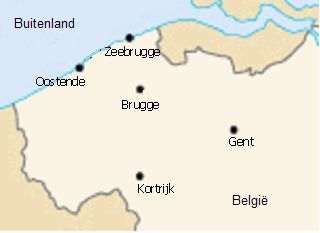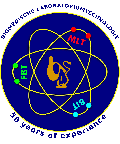
Pages
School of Forensic & Applied Sciences, University of Central Lancashire, Preston, UK
Abstract Bachelor Project FBT 2018-2019: Optimisation of Rapidly Mutating Y STRs
The Y-chromosome short tandem repeats (Y-STRs) have been a valuable asset in forensic genetics since the Y-chromosome does not undergo recombination. These short tandem repeats (STRs) remain the same in successive generations along the paternal lineage. Certain Y-STRs loci have a higher mutation rate than others. These higher mutating Y-STRs were named Rapidly mutating Y-short tandem repeats (RM Y-STRs) (Ballantyne e.a., 2012).
A multiplex comprising of these thirteen markers was developed by the University of Central Lancaster, UK. In the current project some STR loci were studied in dept and were sequenced for a number of samples for the determination of correct allele calls.
The work was conducted using DNA extractions from volunteers, DNA extractions provided by the supervisor and commercial positive control DNA 2800M and 9948. Singleplex loci (DYF403S1, DYS570 and DYS627) were optimised using agarose gel electrophoresis. After optimisation, all the loci were sequenced in four samples and two positive male controls. The sequencing data was analysed using BioEdit or MEGA 7.
The eleven RM Yplex samples that were individually sequenced for the DYS627 locus were eventually compared with the RM Yplex genotype results to validate them. Four extracted male DNA sample and two positive male controls samples (9948/2800M) were also sequenced for the locus DYF403S1a. All the extracted samples had an allele calling that was higher than the reference allele call. A new counting method (Lee e.a., 2017) was then used to call the alleles.
Using this method, the correct allele could be called. Four extracted male DNA sample and two positive male controls samples (9948/2800M) were successfully sequenced using the reverse primer for the locus DYS570. With the help of sequencing data, all alleles could be called correctly. 262 pedigree samples from different African populations were amplified using the RM Yplex kit and the genotypic data was provided for this project. From this population eleven samples were sequenced for the locus DYS627 using Sanger sequencing. With this all alleles were correctly called.
Analysis of the genotypic data for thirteen RM Y-STRs was conducted. The pedigree samples showed interesting results for the DYF403S1a/b locus. In previous studies (Boattini e.a., 2016) (Ballantyne e.a., 2010, 2012), the locus has showed a high mutation rate and high discrimination power. The African database for the thirteen RM Y-STRs, indicated that this locus has a lower discrimination power (28% for DYF403S1a and 2% for DYF403S1b) than originally thought.
It can be concluded that the loci DYS627, DYS570 and DYF403S1 should be further optimised. For this, newly designed primers could be used to avoid amplification of non-specific products and generate a consistent result. It can also be concluded that further research should be done to assess the discrimination power of the locus DYF403S1a/b in other populations.
Abstract Bachelor project 2017-2018: A study of Y chromosome STRs
Due to confidential reasons this could not be published.
Address
|
PR1 2HE Preston
United Kingdom |
Contacts
|
Traineeship supervisor
Sibte Hadi
|

